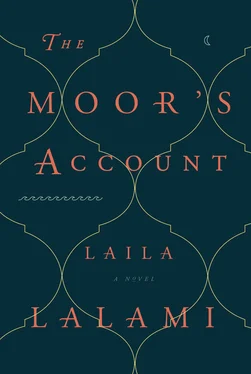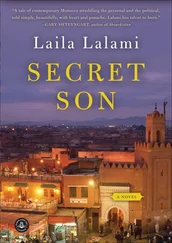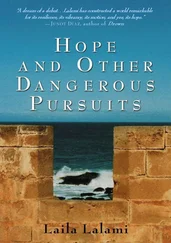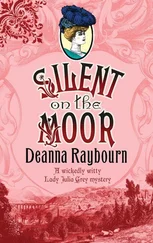It was a hot, humid day, but even as sweat trickled down my back and with a fly exploring the spaces between my toes, I did not dare move a muscle. I could hear the governor complaining about how difficult it was to find an experienced pilot. None of those I have spoken to, he was saying, are familiar with the western seas.
He threw a chicken bone out of the window — uncouth behavior, but it did not surprise me coming from him — and it landed in one of the bushes on my left. I flattened my back against the wall even further.
I have heard of one pilot, Señor Cabeza de Vaca replied, by the name of Miruelo, who claims he was part of the voyage of Ponce de León, and that he can take us to La Florida.
For the remainder of the meal, they discussed hiring this man. I did not hear Señor Cabeza de Vaca ask for the position of lieutenant and I did not hear the governor promise him one, yet when I reported the conversation to Señor Dorantes, his doubts grew stronger, not weaker. My master was an ambitious man, and ambition made him suspicious of his rivals.
Señor Castillo had trouble removing the rest of the golden charms with his thumbnail, for they were sealed to the leather with glue.
Here, I said, offering him my rusty pocketknife.
Perfect, Señor Dorantes said, patting me on the back. This gesture, this little gesture, nourished the dream I had conceived when I found the pebble of gold.
Once the headdress was stripped of its spangles, we returned to the square, just in time to hear the governor say that he had given the name Santa María to the village. He received the charms from Señor Castillo’s cupped hands and examined them under the harsh afternoon sun. Then he sent spit shooting out of his mouth in a long, straight line. This is gold, he confirmed.
The charms were passed around to the handful of officers and friars who were standing near the governor. A mosquito flew into one of Señor Cabeza de Vaca’s ears and he slapped himself, tilting his head sideways to get it out, but all the while he held on to one of the golden charms, turning it between his fingers. The commissary was saying something about the urgency of destroying the heathen idols in the temple. Quietly, the governor spoke. Did anyone else find any gold?
The captains stopped talking and looked at each other. One of them had found an arrowhead made of gold and another had come across what looked like a small silver earring, but no one had brought back as much gold as Señor Castillo. So this is all of it, Señor Narváez said.
Señor Castillo cleared his throat and seemed about to say something when the governor held up his palm to stop him. In a thin voice, he ordered one of the carpenters and one of the prisoners brought to him. From the carpenter, a Portuguese man with a slight limp and a bushy beard, who went by the name of Álvaro Fernándes, he borrowed a hammer and nails. Then he had two of his soldiers force the Indian prisoner to sit on his knees, with his hands before him, in a pose that reminded me of a man at prayer.
Listen to me carefully, the governor said. Is this Apalache?
The prisoner nodded. He was thin and very long-limbed, and on his right shoulder there was a birthmark in the shape of a circle.
This is Apalache? The governor crouched in front of the man, so that he could look him in the eye.
The prisoner nodded again. His eyes were like dark pools, filled to the brim with attention.
It cannot be Apalache. There is little gold here.
The man seemed to hesitate now. Then he nodded again.
Are you telling me the truth? And with this, the governor brought the hammer down on the man’s little finger.
Howling with pain, the man yanked his hand, but the soldiers restrained him and put it back down on the ground. The shattered nail oozed blood, and the knuckle was broken.
Fernándes, the carpenter whose innocent tools had been turned into instruments of torture, walked away toward the huts, but all the officers stood, waiting for an answer to the governor’s question. Where is Apalache?
I wish I could say that I protested. I wish I could say that I enjoined the governor to leave the poor man alone. But I was afraid to speak. I am a slave now, I told myself, I am not one of them. I cannot interfere in matters between the Spaniards and the Indians.
The governor hammered another finger, blind to the blood that now streaked the earth.
Señor, I whispered, shall I go prepare you something to eat? I wanted to walk as far away from the square as I could, to go someplace where I would not have to see what was being done to the prisoner. Señor Dorantes did not hear me or did not wish to answer. I tried again — louder this time. Señor.
My master finally turned toward me, but before he could answer, someone called out, Don Pánfilo, please. Please. It was the youngest of the friars, Father Anselmo, leaning so far forward he seemed about to fall. With all eyes on him now, his voice rose to a higher register, and he began to stutter. P-p-please stop, he said. Th-th-this man d-d-does not know a-a-anything.
The commissary gave Father Anselmo a deeply censuring look, and the red-haired friar bit his lower lip, as if to force himself to say no more. His face, already burned by the sun, turned a dangerous shade of pink. Now he cast his eyes down on his sandaled feet, like a reprimanded child. From somewhere near the village came the call of a strange animal — I could not tell if it was beast or fowl — but otherwise it was quiet, all the officers waiting for the governor to say something in return.
Señor Narváez stood up slowly and, rubbing the soreness from his knees, handed the hammer to his page. Take the prisoner away, he said.
BUT THE INTERROGATIONS DID not stop — they continued for several days, in the privacy of a special hut. Señor Narváez was nothing if not a patient and thorough man. In the presence of at least one of his officers, he spoke to each prisoner and then compared the prisoner’s answers to the ones that had been given by the others. After he had questioned all of them, he did it again, perhaps to see if they had changed their minds. Whenever the guards walked a prisoner back to the holding cell, the commissary and one of his friars would appear. The first would go to the governor to inquire about the progress of the investigation; the other would wash the Indians’ wounds and dress them in strips of cloth.
So for a few days, I was spared the sight of pain. I heard the howling, but I did not have to see it. Still, as I swept the hut that had been requisitioned for Señor Dorantes, as I picked corn for his meals or washed his clothes with the last scrap of Castile soap I still had — women’s tasks, tasks my bondage had reduced me to and from which I longed to be freed — I had ample time to imagine the prisoners’ pain. I knew what it was like to be whipped, to protest, to proclaim one’s innocence only to be whipped with greater fury, and to find that the beatings subside only in the face of complete and unquestioning surrender. On my neck, I still had a scar made by the heel of my first owner, a man everyone in Seville regarded as kind and devout and generous. Señor Dorantes had not beaten me, but that did not mean that he would not start — all it meant was that I had managed to avoid his ire thus far.
It took me a day and a half to gather the courage to smuggle some food to the Indians. I could not give them nuts or fruit, because I feared that the guards would find an errant nut or a fallen seed, and would question the prisoners about its provenance. Using an Indian pestle and mortar, I ground some corn and made flatbreads, which I hid until the prison guard had to go to the necessary.
The night was warm and dark. The only light came from the torches that had been placed along the path that led to the river. When I slipped inside the cell, I heard the movements of the prisoners and smelled their presence before my eyes adjusted to the darkness. Two of them lay on blankets in the corner, asleep or pretending to sleep. The others were huddled together, with their knees against their chests. The man whose nails had been hammered in the village square recognized me and recoiled when he saw me reach into my pocket. I brought out the flatbread and pressed it into his bandaged hands. Seeing this, the others reached out for the bread, too. I wanted to speak their language, but I would have needed to spend time with them in order to learn the cadences of their native tongue. For now, silence was our only idiom.
Читать дальше












